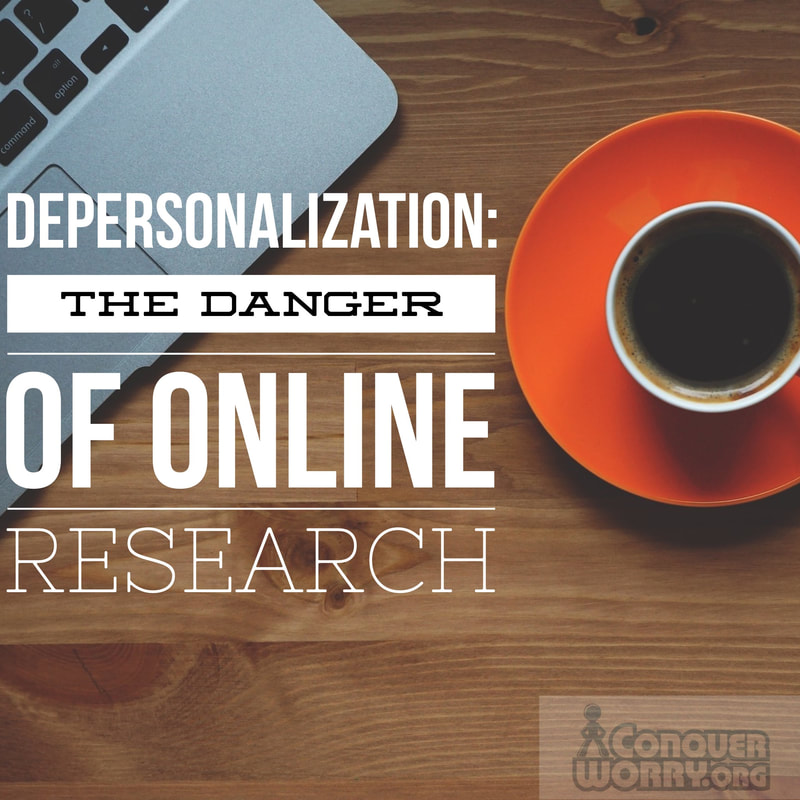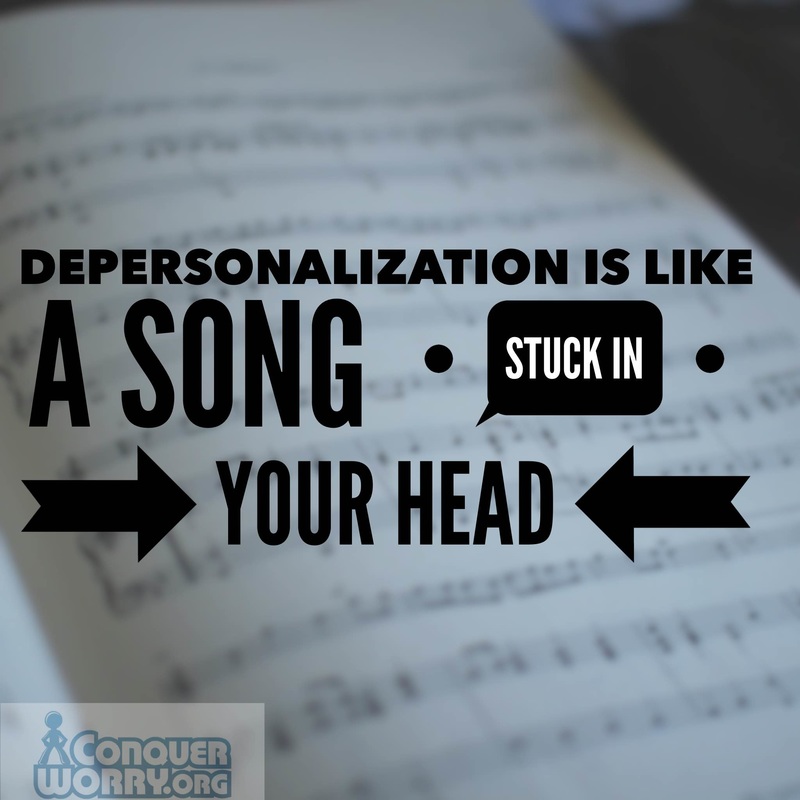|
Article by Shaun O'Connor Edit and post design by Christy Zigweid Photo by freephotocc via Pixabay using @WordSwagApp The availability of medical information across the Internet has absolutely changed how we think about the process of diagnosis. In the past, coming to a conclusion about a group of symptoms was strictly the purview of medical professionals. These days, however, it’s safe to say that most people will at least Google their symptoms before making the decision to see a doctor. I don’t think that this is necessarily a bad thing. Certainly, people can overdo it, jump to panicked conclusions etc. But the fact is that with calm thinking and smart research, a great deal of empowerment is handed back to patients. In countries where medical care is costly, that can mean huge savings for people with minor conditions that a doctor would recognize straight away. Online resources can also provide tremendous support to people with conditions like depression: group communities can provide daily support and exercises for people who might otherwise have simply been prescribed medication by an overworked doctor. However, there’s a specific a group of conditions for which online research and self-analysis can be unhelpful, and even prolong the condition indefinitely: anxiety-spectrum disorders. Panic attacks, GAD, agoraphobia, PTSD, social anxiety, etc -- these are fundamentally different from other conditions in that while they can be triggered by any number of factors, they are driven primarily by ongoing self-analysis of the condition. There’s an often-heard truism in the anxiety community: “If you could just forget that you ever had the condition, it would stop completely.” After all, there’s no organic brain condition that’s causing the disorder to persist, it’s 100% an unwanted thought process. Certainly physical symptoms can occur simultaneously (muscle tension / pain, shortness of breath, etc), but these are a result of the anxious thought process, not the other way around. Depersonalization is one of the most frightening symptoms of anxiety, a feeling of being cut off from your surroundings, as if in a dream or looking at the world through a pane of glass. Friends and loved ones can seem like strangers and you may even feel as if you don’t recognize yourself in the mirror. The sensation itself is commonly experienced (temporarily) when going through a traumatic experience but for many people it can persist and become Depersonalization Disorder (DPD). DPD is one of the more self-reflexive iterations of anxiety, since unlike say, panic attacks or social anxiety, it can persist 24/7 without any apparent trigger. This, coupled with a general lack of medical awareness on the subject, invariably means that sufferers end up intensively searching online for diagnoses, advice etc. And here’s where the availability of medical advice online becomes a problem, often leading sufferers to forums and discussion boards populated with people who are, in the main, as confused and frightened as they are. While a condition like depression can be greatly helped by speaking to a supportive community on a regular basis, the opposite is typically the case for anxiety-based conditions like depersonalization. Disorders like DPD thrive on self-analysis, be it positive or negative, and every message, post and comment reasserts their validity. I suffered with chronic DPD for two years and know all too well the frustration it creates. The urge to research the condition online is almost overwhelming: there’s always the hope that there’s some unseen post out there that will explain the condition, some new pill or combination of old medications that will be the magic bullet. The sad irony is that that very hope for a sudden recovery is both disregarding the nature of the disorder and causing it to persist. Sure, it can briefly feel productive (and even healthy) to do research, to ask more questions about the condition. But the problem is that there’s always more questions. There’s always more research to do. It’s only when you accept that the questions themselves are fueling the condition that recovery becomes possible. The availability of online medical resources and forums has in many ways democratized how we think about the distribution of medical information and diagnoses. But it’s vital to remember that there is a growing subset of anxiety conditions (incredibly, an estimated 2% of people in the US experience dissociative disorders) - Depersonalization being a prime example - that can persist specifically because of the sufferer’s endless need to seek out more information. For sufferers of these types of conditions, online research is very much a mixed blessing. About the Author
2 Comments
Article by Shaun O'Connor Edited by Maureene Danielle Post Design by Christy Zigweid Photo by using @WordSwagApp Of all the symptoms associated with anxiety, depersonalization (DP) is possibly the most persistent and overwhelming. It’s a condition that’s incredibly common yet rarely spoken about. DP happens when the mind seeks to protect itself from trauma (a bad drug trip, a car crash) and temporarily creates a sense of disconnection with the outside world. It’s only supposed to last a few minutes to allow the trauma to pass; but for many, the disconnection becomes a focal point (“Why am I feeling this way?”) and persists far beyond the initial trauma. The mind’s awareness of its own defense measure turns into a feedback loop that can last for years, even a lifetime. It’s as frightening as it sounds. You know that phrase, “crazy people don’t know they’re crazy”? Depersonalization is like that, except you know that what’s happening is crazy. Your mind is constantly going off on frightening, bizarre tangents, but your reality testing stays intact. I’ll never forget my first few months with the condition. I genuinely thought that I’d gone insane, that somehow reality had turned inside out and only I could see it. It was horrifying. There’s also retrospective guilt and examination: What brought this condition on? One puff of weed too many? A fight with my parents? A childhood trauma? There are no definite answers and so the logical brain finds itself in a state of constant, anxiety propelled flux. Sufferers find themselves sucked into this spiral of self-examination to frightening degrees. Check out any DP forum (or preferably, don’t) and you’ll find the darkest, wildest existential concepts being discussed in concrete terms. I was no stranger to that myself. At one point, I considered the possibility that I had died on the night that I first experienced depersonalization and that I was now in some purgatorial state. It seems crazy now but that type of deduction is not uncommon in the DP community. In an extreme situation with no rhyme or reason, one explanation is as good as the next. While I pretended to engage in an ordinary life, depersonalization obsessed me. While driving my car, watching tv, chatting with friends, or lying in bed, my mind feverishly raced down endless metaphysical culde-sacs. I embarked on fractal mental odysseys while feeding the dog. I concocted complex theories that existed for mere seconds at a time. It was exhausting and unbearable. And yet, when I look back on it now, after years of complete recovery, I believe that it’s primarily the condition’s very ineffability that causes it to persist. You see, everything about DP invites self-analysis and analysis is its oxygen. Without paying attention to it, the condition would dissipate just as naturally as it should have done in the first place. But it’s tough not to analyze it when everything in your experience insists that there’s an actionable way out of this. In a culture that tells us all ailments can be cured with the right medication, it only makes sense that somewhere out there is a pill or therapy that will fix everything instantly. And so, with no immediate antidote available, DP sufferers become DP researchers. They even become experts. They know the stats, the texts, and medications, yet, they can’t get rid of the DP itself. They don’t understand why this mountain of knowledge isn’t stopping the thoughts. They rarely, if ever, pause to think that it’s specifically the pursuit of an answer that’s perpetuating the condition. In the end, researching depersonalization is like a Chinese finger trap; struggling against it is pointless. Fundamentally, it’s the same thing as having a song stuck in your head. It’s a habit of thought and you can’t “logic” your way out of it. The only way to deal with it is to overwrite the habit. If you had a song stuck in your head for months, what would you do? Would you research the song in an attempt to understand its inner workings? How about if you spent all day looking at forums related to that song? If you had copies of the lyrics strewn around your house or if you actively engaged in conversation about the song every day? Of course, that wouldn’t help. Technically it’s “research,” but it’s certainly not going to fix your problem. And yet, that’s exactly what the vast majority of DP sufferers do. They often end up researching it for years on end, wondering why it never goes away. What would be much more effective would be to get rid of all traces of that song from your life. Throw out the CDs, the lyrics, the reminders. Stop looking it up. Stop discussing it. And then, with all the strength that you can muster, fill your life with new songs. Your brain will absorb the new information and naturally overwrite the thought habit of the old song. That’s what your brain is designed to do. In fact, it’s what your brain wants you to do; not to bury yourself in the ephemera and texts of anxious thought. It wants you to do what is natural and propel yourself forward in life and knowledge, and to allow old thoughts, anxious or otherwise, to dissipate naturally. About the Author
|
Build Your Action Based Stress Reduction System
Popular PodcastsOlympian Suzy Favor Hamilton - From Fame to Prostitution to Advocacy
Hall of Fame Basketball Star Chamique Holdsclaw on Mental Resilience Diana Nightingale on her husband Earl Nightingale's Principles for Mental Health Success JoAnn Buttaro on Date Rape & PTSD Survival Story: Its Never Too Late Gabe Howard on BiPolar Advocacy Phil Fulmer on Teen Suicide Prison, Bipolar and Mania with Andy Behrman Columbia Univeristy's Dr. Rynn on OCD Archives
March 2018
Categories
All
|






 RSS Feed
RSS Feed





